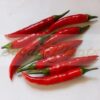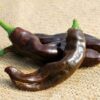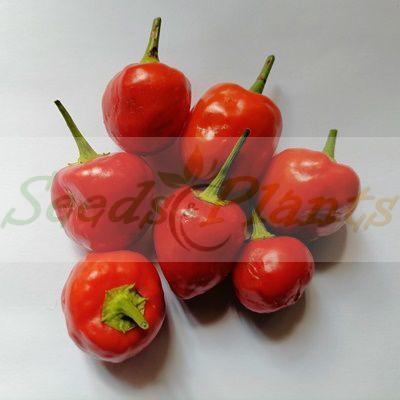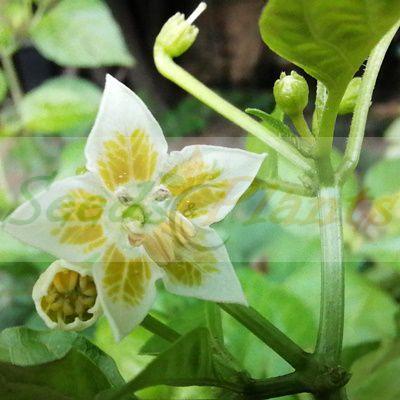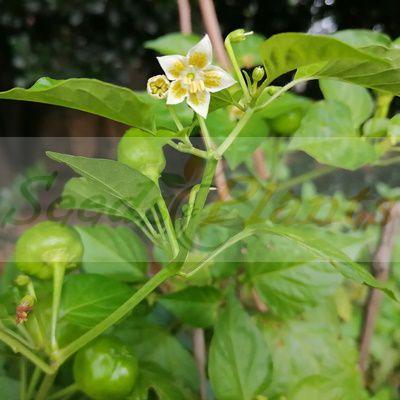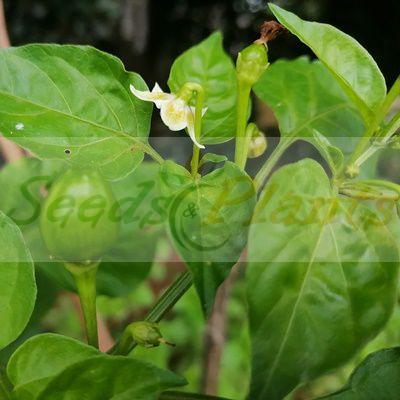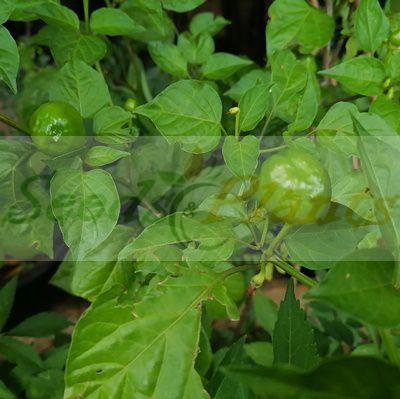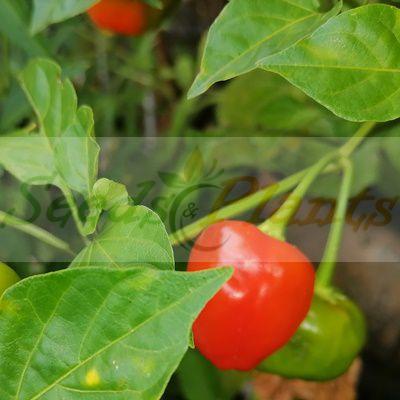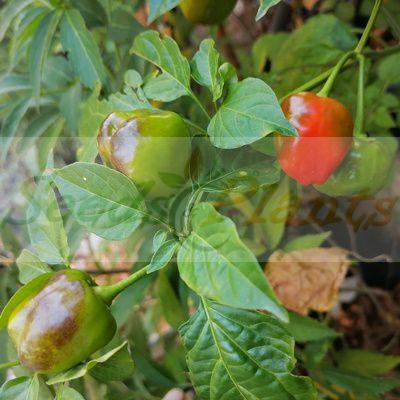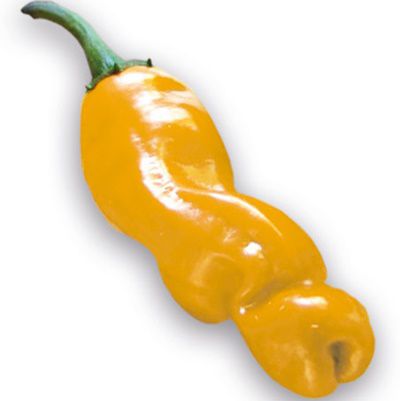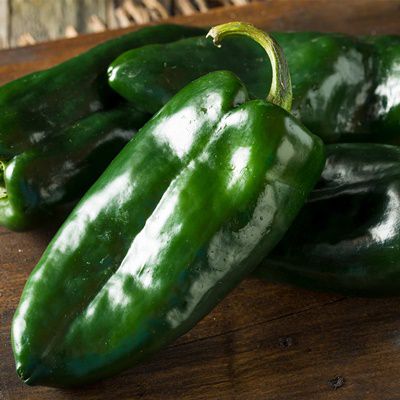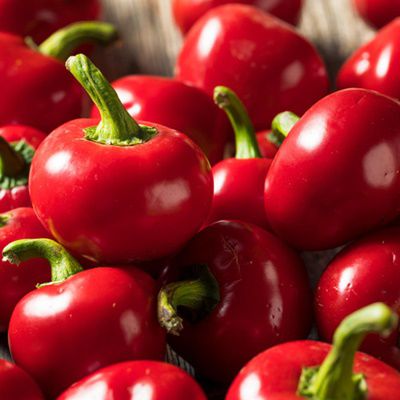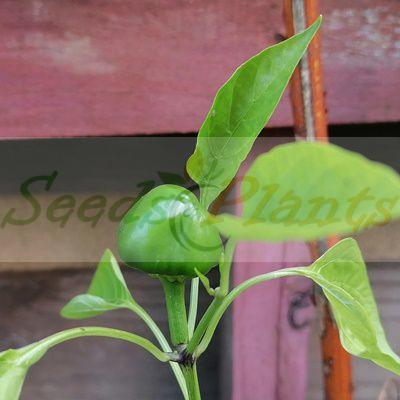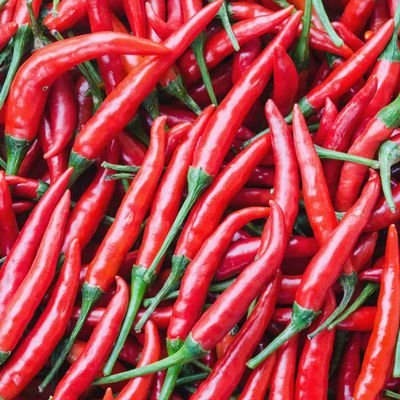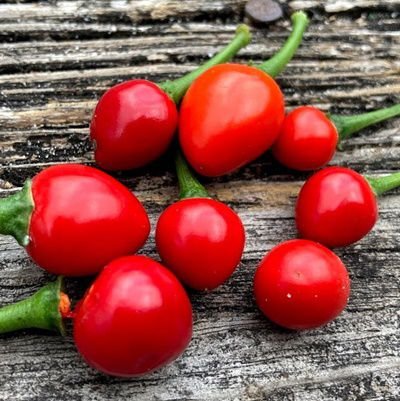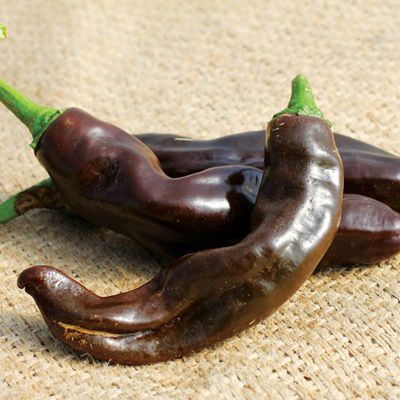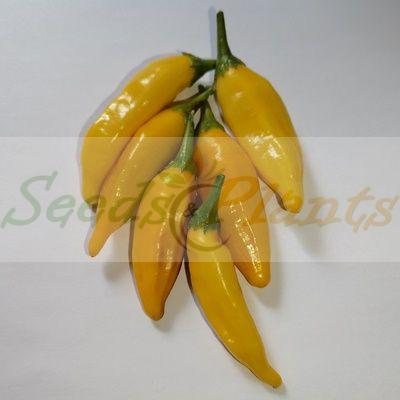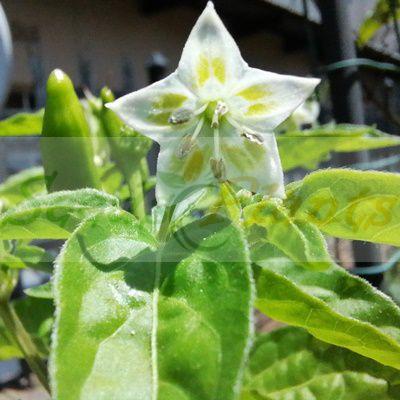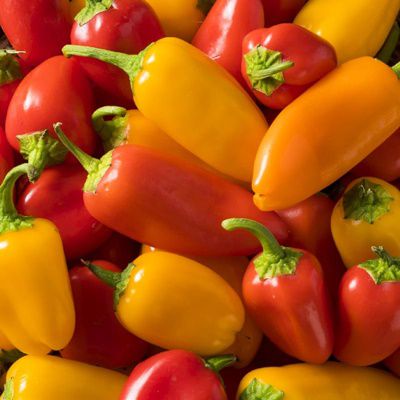Scotch Bonnet Chilli Pepper – 20 Seeds
(Scoville heat units: 100,000 to 350,000)
R30.00
Scotch Bonnet Chilli Peppers are used to flavor many different dishes and cuisines worldwide and are often used in hot sauces and condiments.
Common Names: Scotch bonnet, scotty bons, bonny peppers, Caribbean red peppers, ball-of-fire pepper and mirus.
Seed Type: Organic – Harvested from our own plants.
Indoor Sowing: Mid Winter, Late Winter and Early Spring.
Direct Sowing: Not Recommended.
Out of Stock
Email me when the product is back in stock.
Scotch bonnet chilli pepper, also known as scotty bons, bonney peppers or Caribbean red peppers is a variety of chili pepper. It is named for its resemblance to a tam o shanter hat. Found mainly in the Caribbean islands, it is also in Guyana (where it is called the ball-of-fire pepper), the Maldives Islands (where it is called mirus).
The scotch bonnet chili pepper is widely used in Jamaican cooking. This species of chili pepper is closely related to the Mexican habanero pepper and is similar in many respects.
Ripe scotch bonnet peppers come in many colors – most commonly green, red, yellow and orange. Peppers are small (about 2-4cm in diameter) and irregularly shaped. Scotch bonnet peppers are rounded with wrinkled, crenulated flesh, similar in shape to a Chinese lantern or a traditional Scottish bonnet (for which they are named). The Scotch Bonnet is a great alternative to the Habanero chili.
Most Scotch bonnet peppers have a heat rating of 100,000–350,000 Scoville units. For comparison, most jalapeno peppers have a heat rating of 2,500 to 8,000 on the Scoville scale.
These peppers are used to flavor many different dishes and cuisines worldwide and are often used in hot sauces and condiments. It has has a sweeter flavor and stouter shape, distinct from its habanero cousin with which it is often confused, and gives pork and chicken dishes and other Caribbean dishes their unique flavor.
Growing Scotch Bonnet Chilli Pepper
Indoor Sowing: Mid Winter, Late Winter and Early Spring.
Direct Sowing: Not Recommended.
- Sow seeds indoors in Mid Winter, Late Winter or Early Spring.
- Soak your seeds overnight in warm water to help them germinate faster.
- Place the seeds on top of the growing medium and cover with a thin layer of soil.
- Mist the soil with water daily so that it stays moist.
- For best germination, keep the soil between 23 and 26 degrees Celsius.
- The pots won’t require light until the seeds sprout.
- Sweet Pepper seeds germinate in about 30 days and Hot Pepper seeds in about 60 days, but it can also take longer.
- After the seeds have germinated, place the pot on a windowsill or in a heated greenhouse.
- When they are 2.5cm tall prick out seedlings, moving each into their own 10cm pot. Make sure the roots are well covered and the leaves are just above the surface of the soil.
- Water and place in a light spot indoors.
- While plants are still growing indoors, move into 13cm pots filled with general purpose compost when roots begin to show through the drainage holes in the base.
- When plants are about 20cm tall, or before if they start to lean, stake with a stick.
- Pinch out the tops of peppers when they are about 30cm tall to encourage lots of branches.
- Plants are ready to be placed outdoors once all danger of frost has passed.
- Either plant directly into the ground, spacing them 45cm apart or transfer them to 22cm pots to give them plenty of space to grow.
- Peppers take a long time to grow large enough from seeds to produce mature fruit, and they require a fairly long growing season.
- Make sure you water regularly, especially in hot weather and feed every two weeks with a general purpose liquid fertilizer. Feeding should start when the flowers first appear and should continue until the fruit have been harvested.
Disclaimer
Medicinal Information:
All medicinal information on this website is for educational and informational purposes only and may not be construed as medical advice. The information is not intended to replace medical advice or treatment offered by healthcare professionals.
Seeds, Plants, Plant Cuttings, Geophytes and Dried Herbs:
In some countries and provinces, certain plants are deemed as invasive and are not allowed to be planted at all, whilst some plants are allowed to be grown only in certain areas or provinces. The onus is on you as the buyer to familiarize yourself with the regulations pertaining to your location, before purchasing any of our seeds, plants, plant cuttings, geophytes or dried herbs. We will not be held liable, should you purchase any seeds, plants, plant cuttings, geophytes or dried herbs. from us which are prohibited in your country or province.
Related products
(Scoville heat units: 15,000 to 30,000)

